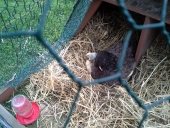
 4
4




 5
5




"When the whole world is running towards a cliff, he who is running in the opposite direction appears to have lost his mind." C.S. Lewis
Visit https://themaineingredient.com for organic, premium dried culinary herbs that are grown, processed, and packaged in the USA.
 1
1




 3
3




"When the whole world is running towards a cliff, he who is running in the opposite direction appears to have lost his mind." C.S. Lewis
Visit https://themaineingredient.com for organic, premium dried culinary herbs that are grown, processed, and packaged in the USA.

 4
4




There is nothing so bad that politics cannot make it worse. - Thomas Sowell
Everything that is really great and inspiring is created by the individual who can labor in freedom. - Albert Einstein
 3
3











 2
2





There is nothing so bad that politics cannot make it worse. - Thomas Sowell
Everything that is really great and inspiring is created by the individual who can labor in freedom. - Albert Einstein
 2
2




I would move her this evening, just to give her a chance to settle before the eggs hatch unless they've already hatched.
"When the whole world is running towards a cliff, he who is running in the opposite direction appears to have lost his mind." C.S. Lewis
Visit https://themaineingredient.com for organic, premium dried culinary herbs that are grown, processed, and packaged in the USA.







 2
2





There is nothing so bad that politics cannot make it worse. - Thomas Sowell
Everything that is really great and inspiring is created by the individual who can labor in freedom. - Albert Einstein
 6
6




 2
2




"When the whole world is running towards a cliff, he who is running in the opposite direction appears to have lost his mind." C.S. Lewis
Visit https://themaineingredient.com for organic, premium dried culinary herbs that are grown, processed, and packaged in the USA.
 1
1











 3
3




There is nothing so bad that politics cannot make it worse. - Thomas Sowell
Everything that is really great and inspiring is created by the individual who can labor in freedom. - Albert Einstein
 5
5





|
I think they should change the spelling to Sandy Eggo. This tiny ad agrees with me.
permaculture bootcamp - gardening gardeners; grow the food you eat and build your own home
https://permies.com/wiki/bootcamp
|




